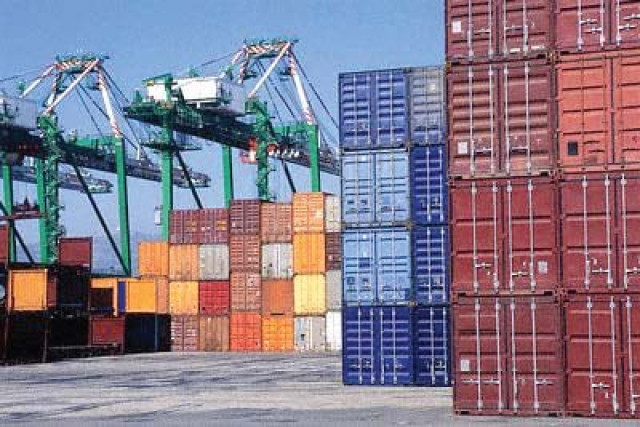Faisalabad Dry Port: Customs authorities holding back billions in rebates
Exporters say dry port cargo service costs more than private cargo service.

Faisalabad Dry Port: Customs authorities holding back billions in rebates
Customs authorities at the Faisalabad Dry Port have allegedly been holding back billions of rupees in rebates for the last many years, exporters said on Wednesday.
“Rebate payments should be made in 72 hours according to the government policy. But the authorities have been holding them back for the last three to four years,” Sheikh Mukhtar Ahmad, owner of Sadaqat Limited, a home textiles company, said while talking to The Express Tribune.
When contacted by this correspondent, Faisalabad’s Collector Customs Imran Tariq refused to comment.
Waseem Altaf, owner of Latif International, a vertically-integrated textiles manufacturing company, said that customs officials and industrialists were always pitched against each other because of the conflict over rebates. “The business community seeks justice. It wants a crackdown on corrupt elements,” he said.
The monthly average cargo handling, which ranged between 150-200 containers sometime ago, has now come down to 10-20 containers.
“The present state of affairs at the Faisalabad Dry Port is because of mismanagement, an antiquated clearance system and long delays in outward cargo trains,” Ahmed said.
Also, businessmen say that the dry port cargo service is expensive than the private cargo service.
The establishment of a modern dry port is a must for the progress of commerce and business in the industrial city of Faisalabad. But the lack of facilities is proving to be a major hindrance in this regard.
Azhar Majeed Sheikh, owner of Arzoo Textile Mills Limited, said that the government should intervene and resolve the issues affecting the dry port. He said cargo handling should be done according to international standards to facilitate the industries.
“Faisalabad is an important hub of trade and industry and its link with other important cities of the country via cargo trains is necessary. But FDP cargo trains have no timetable and schedule,” he said.
He said that the insufficient cargo facilities at the dry port had a negative impact on national exports.
“Faisalabad-based exporters think that FDP has damaged their businesses due to long delays in cargo trains. There is an estimated 50 percent decline in orders mainly due to the FDP clearance system.
“It creates great losses for domestic and international buyers,” Ahmad said.
He said the port was likely to be closed down in the next few months due to a lack of business activities.
“The business community of Faisalabad holds the FDP management responsible for the situation. We demand that the government should intervene to save the future of exports by launching an accountability process at FDP,” he said.
Published in The Express Tribune, August 11th, 2011.



















COMMENTS
Comments are moderated and generally will be posted if they are on-topic and not abusive.
For more information, please see our Comments FAQ